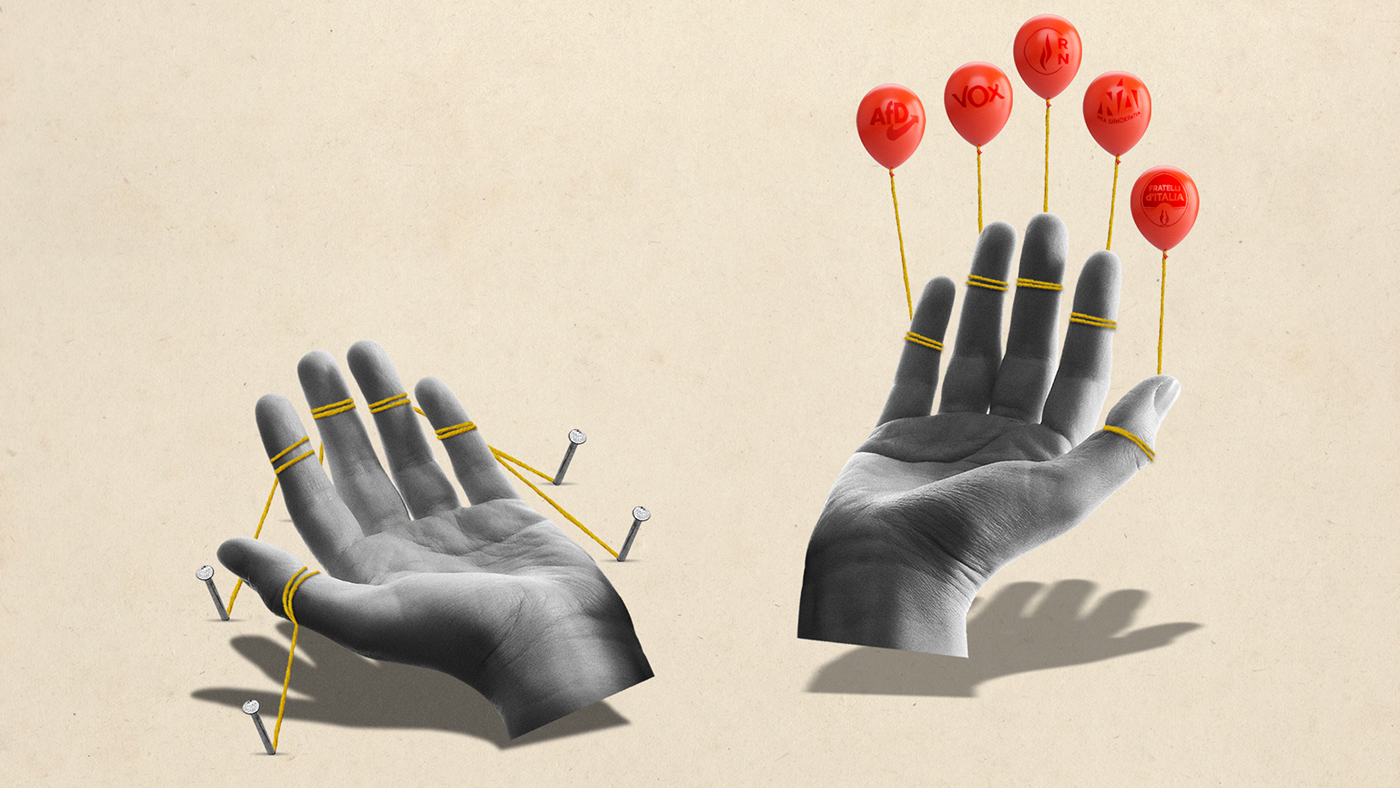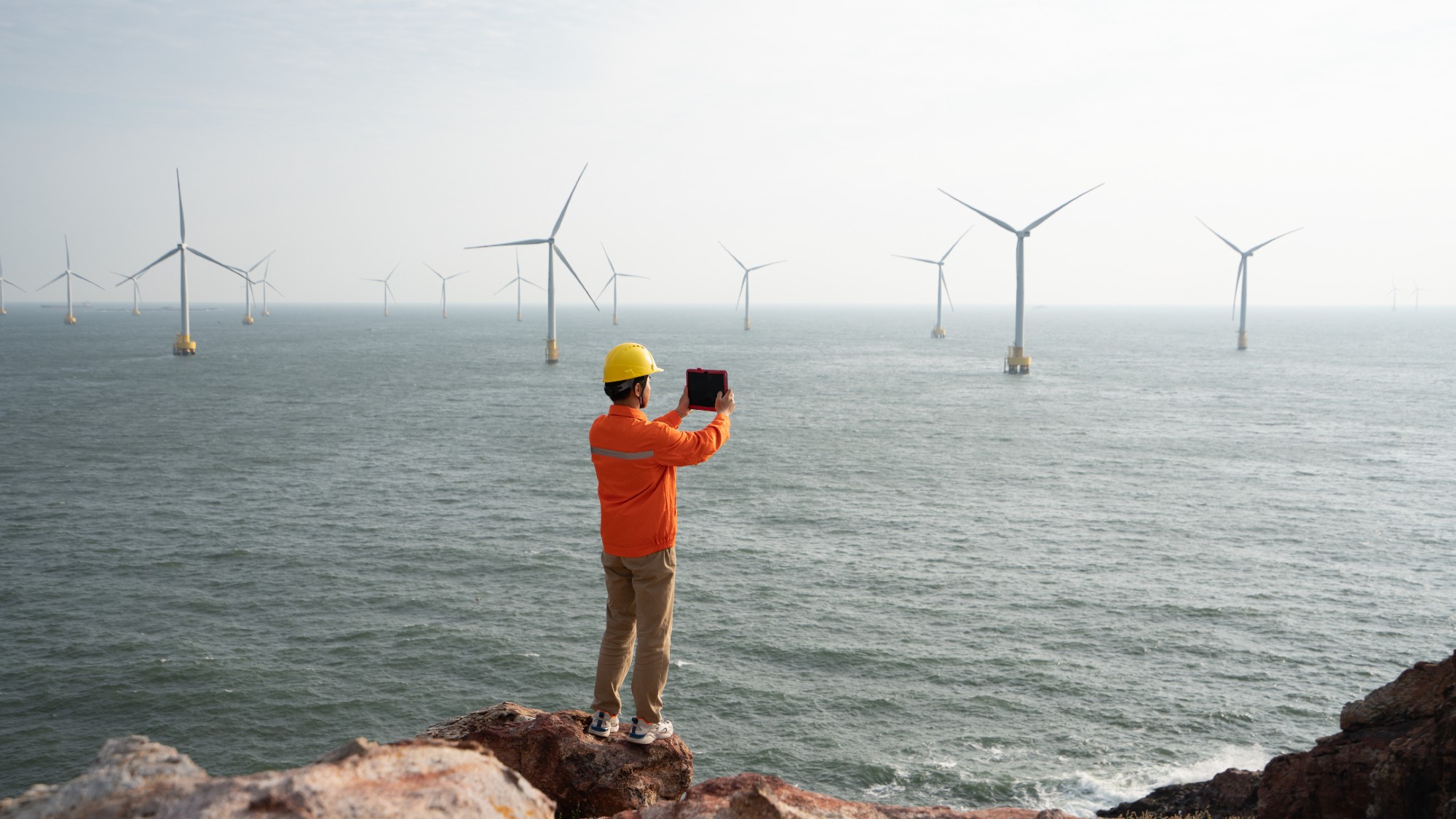Is Europe’s radical left in permanent decline?
Once-ascendant parties across the continent face an existential crisis amid internal divisions and the rise of the far-right

A free daily email with the biggest news stories of the day – and the best features from TheWeek.com
You are now subscribed
Your newsletter sign-up was successful
Radical parties of the left are facing an existential crisis amid a wave of election defeats that has seen populist nationalists sweep to power across Europe.
In Greece, the once-dominant Syriza, which ruled the country from 2015 to 2019, saw its support drop to just 18% in Sunday’s election. In Spain recent regional and mayoral elections dealt a hammer blow to the ruling left coalition, potentially paving the way for the far-right Vox to make big gains at next month’s snap election.
Across the continent reactionary parties of the far-right are on the rise, while the once-ascendent left looks divided and demoralised.
The Week
Escape your echo chamber. Get the facts behind the news, plus analysis from multiple perspectives.

Sign up for The Week's Free Newsletters
From our morning news briefing to a weekly Good News Newsletter, get the best of The Week delivered directly to your inbox.
From our morning news briefing to a weekly Good News Newsletter, get the best of The Week delivered directly to your inbox.
What did the papers say?
Turn the clock back to 2015 and the picture looked decidedly different. With established social democratic parties across Europe haemorrhaging support in the early 2010s, insurgent far-left parties seized their moment.
Emerging from grassroots social movements, such as the Indignados in Spain, and driven by a strong anti-austerity agenda, by the mid-2010s it “seemed probable that the radical left would be the main beneficiaries of the financial crisis”, wrote Michael Chessum in the New European.
Yet fast-forward to today and the far right “has emerged as indisputably the biggest beneficiary of political and economic crises of the past decade”, Chessum added. Recent polls in Italy, Sweden and Finland have seen them join the likes of Hungary, Poland and Turkey as part of a growing cohort of nationalist-right governments.
On Sunday, Germany’s far-right Alternative für Deutschland (AfD) experienced its own “watershed moment” by winning an election for the first time in its 10-year history.
A free daily email with the biggest news stories of the day – and the best features from TheWeek.com
Looking forward, Spain’s president Pedro Sánchez has called a snap election for next month in order to attempt to head off rising support for the far-right Vox party. In France, many place Marine Le Pen as the frontrunner to win the next presidential election.
The irony, said The Economist, is that “this should be a propitious time for Europe’s left”. Rising inflation, a cost-of-living crisis and concern over climate change rank among the most important issues for voters across the continent. But “leftist parties offering more government spending face two problems”, added the magazine. The first is that with much higher inflation and levels of government debt following the pandemic, “they no longer have fiscal room”, while the second is that on state intervention they have won the argument, with the whole political spectrum agreeing state intervention in the economy is needed. “That makes it hard for leftist parties to stand out,” said The Economist.
Each country is different and circumstances unique, admitted The Observer’s foreign affairs correspondent Simon Tisdall, “yet a broad pattern is discernible” when it comes to the decline of the radical left, “and it’s not difficult to trace”. The common denominator, he argued, is that parties of the hard – and indeed soft – left in Europe are “too fractured and fractious to build winning coalitions that offer convincing alternative solutions to voters’ problems”.
Take the recent election in Greece, where Syriza was “plagued by infighting between different factions”, said national newspaper Ekathimerini.
Despite appearing vulnerable, the triumph of incumbent Prime Minister Kyriakos Mitsotakis’s scandal-hit centre-right New Democracy party “confirms that most Greeks prefer the austere stability he offers to the grim economic anarchy that the far-left Syriza presided over”, said The Spectator.
What next?
Marta Lorimer, an expert in far-right politics in Europe at the London School of Economics, told NBC News that the success of the radical right in Greece and elsewhere has had a profound political effect: shifting the needle when it comes to the traditionally more moderate parties.
“The main challenge is that you have a centre right that’s copying the messaging of the far right. The prime minister can now say that the election results show people want more far-right policies,” she said.
They may draw from a common playbook based on “the weaponisation of ethnic, racial, gender and regional differences” but “it’s not as though right-wing conservatives, populists, nationalists and assorted radicals and extremists have all the answers,” said Tisdall. Just look at the UK, Hungary and Poland, where “they are often clueless and divided, too. But centrist and leftist parties are struggling to convince voters they can do any better”.
Herein, perhaps, lies a lesson for Keir Starmer as he looks to shed Labour’s radical legacy and win power by shifting rightwards.
Better to draw a line like Sánchez in Spain, said Tisdall, “then set one’s own agenda, offer a clear choice and trust voters to decide”.
“It’s not that complicated. Unity, plus well-defined, principled policy programmes, is the way the left stops losing – and learns to win again.”
Elliott Goat is a freelance writer at The Week Digital. A winner of The Independent's Wyn Harness Award, he has been a journalist for over a decade with a focus on human rights, disinformation and elections. He is co-founder and director of Brussels-based investigative NGO Unhack Democracy, which works to support electoral integrity across Europe. A Winston Churchill Memorial Trust Fellow focusing on unions and the Future of Work, Elliott is a founding member of the RSA's Good Work Guild and a contributor to the International State Crime Initiative, an interdisciplinary forum for research, reportage and training on state violence and corruption.
-
 Democrats push for ICE accountability
Democrats push for ICE accountabilityFeature U.S. citizens shot and violently detained by immigration agents testify at Capitol Hill hearing
-
 The price of sporting glory
The price of sporting gloryFeature The Milan-Cortina Winter Olympics kicked off this week. Will Italy regret playing host?
-
 Fulton County: A dress rehearsal for election theft?
Fulton County: A dress rehearsal for election theft?Feature Director of National Intelligence Tulsi Gabbard is Trump's de facto ‘voter fraud’ czar
-
 Why is Tulsi Gabbard trying to relitigate the 2020 election now?
Why is Tulsi Gabbard trying to relitigate the 2020 election now?Today's Big Question Trump has never conceded his loss that year
-
 Le Pen back in the dock: the trial that’s shaking France
Le Pen back in the dock: the trial that’s shaking FranceIn the Spotlight Appealing her four-year conviction for embezzlement, the Rassemblement National leader faces an uncertain political future, whatever the result
-
 Will Democrats impeach Kristi Noem?
Will Democrats impeach Kristi Noem?Today’s Big Question Centrists, lefty activists also debate abolishing ICE
-
 Do oil companies really want to invest in Venezuela?
Do oil companies really want to invest in Venezuela?Today’s Big Question Trump claims control over crude reserves, but challenges loom
-
 What is China doing in Latin America?
What is China doing in Latin America?Today’s Big Question Beijing offers itself as an alternative to US dominance
-
 Biggest political break-ups and make-ups of 2025
Biggest political break-ups and make-ups of 2025The Explainer From Trump and Musk to the UK and the EU, Christmas wouldn’t be Christmas without a round-up of the year’s relationship drama
-
 Why is Trump killing off clean energy?
Why is Trump killing off clean energy?Today's Big Question The president halts offshore wind farm construction
-
 Why does Trump want to reclassify marijuana?
Why does Trump want to reclassify marijuana?Today's Big Question Nearly two-thirds of Americans want legalization